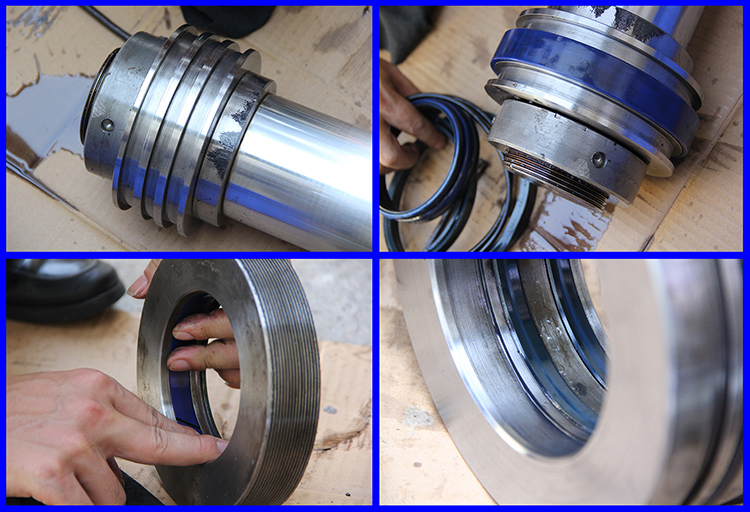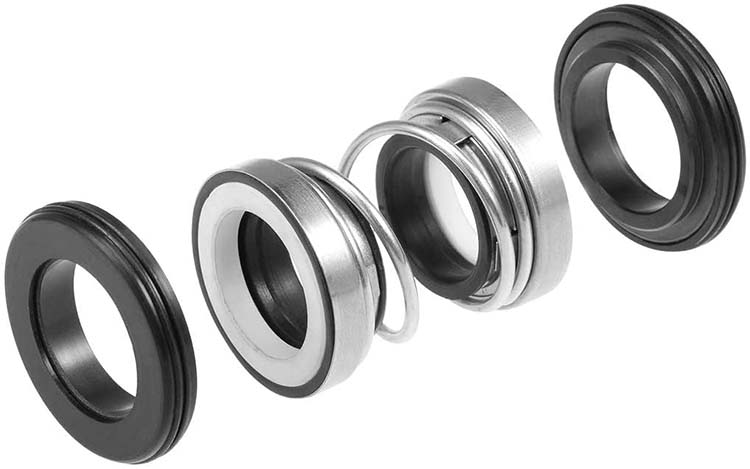Mechanical seals are widely used in industrial equipment, especially in pumps, boilers, and other systems, playing a critical role in preventing leaks and ensuring system integrity and efficiency. However, mechanical seals can fail over time, leading to downtime, reduced productivity, or even safety hazards. As a company specializing in the design, production, maintenance, and installation of mechanical seals, Shanghai EK Seal Co., Ltd. offers valuable insights into identifying and addressing the root causes of mechanical seal failure, thereby extending the lifespan of industrial equipment.

1. Common Causes of Mechanical Seal Failure
1.1 Excessive Wear
Wear is one of the most common causes of mechanical seal failure. Prolonged operation, overloading, and poor working conditions can accelerate friction between the sealing surfaces, leading to surface wear. This not only reduces the lifespan of the seal but also increases the likelihood of leakage, affecting system performance.
1.2 Excessive Temperature
Temperature is a critical factor in the performance of mechanical seals. When operating temperatures exceed the material’s tolerance limits, thermal expansion and thermal stresses may occur, leading to seal failure. This is particularly a concern in high-temperature pumps or boilers. Maintaining an optimal operating temperature is essential to prevent thermal damage to the seal.
1.3 Insufficient Lubrication
Mechanical seals require adequate lubrication to reduce friction and wear. Lack of sufficient lubrication can lead to direct contact between the sealing surfaces, generating heat and causing failure. Inadequate lubrication can also cause surface corrosion or uneven wear, compromising seal reliability and performance.
1.4 Improper Installation
The quality of installation directly impacts the performance of mechanical seals. Improper installation, such as damaging the seal components, misalignment, or incorrect compression force, can lead to seal failure. Accurate alignment, proper compression, and ensuring component integrity during installation are essential for preventing failure.
1.5 Contamination by Foreign Particles
Foreign particles entering the mechanical seal system can cause damage to the sealing surfaces, leading to degradation of the sealing effect. Common contaminants include dust, debris, and corrosive substances. Keeping the sealing system clean and free from contaminants is a key measure to prevent failure.
1.6 Material Mismatch
The material used for mechanical seals plays a significant role in determining their performance. If the seal material is unsuitable for the operating conditions, such as lacking resistance to corrosion or failing to withstand high pressure or temperature, the seal is likely to fail. Selecting the right material that matches the operational environment is crucial in avoiding failure.

2. How to Prevent Mechanical Seal Failure
2.1 Regular Maintenance and Inspection
Regular inspection and maintenance of mechanical seals are crucial to extending their service life. By checking for wear, lubrication status, and the condition of the sealing surfaces, potential issues can be identified early and addressed before they lead to failure. Shanghai EK Seal Co., Ltd. offers professional seal maintenance services to ensure optimal performance over time.
2.2 Choose the Right Seal Materials
Choosing the appropriate seal material for specific operating conditions is essential. Shanghai EK Seal Co., Ltd. provides a wide range of materials, including those that are resistant to high temperatures, high pressures, and aggressive media, to meet various industrial needs. Selecting the right material for the job can significantly reduce the risk of failure.
2.3 Monitor Operating Conditions
The working environment has a direct impact on mechanical seal performance. Controlling factors like temperature, pressure, and humidity, and avoiding excessive temperature or pressure fluctuations, are necessary to ensure long-term, stable operation. Regular monitoring of the operating environment can help identify potential problems early and allow corrective action.
2.4 Train Operators
The skills and knowledge of operators are directly related to the performance of mechanical seals. Shanghai EK Seal Co., Ltd. provides comprehensive technical training to help customers understand the principles and best practices for using mechanical seals. Proper training minimizes the risk of installation errors or improper operation that could lead to seal failure.
2.5 High-Quality After-Sales Service
Quality after-sales service is vital in resolving any issues that arise during the operation of mechanical seals. Shanghai EK Seal Co., Ltd. is committed to providing excellent after-sales services, including technical support, installation guidance, and regular maintenance to ensure the long-term reliability of mechanical seal systems.
3. Conclusion
Mechanical seals play an irreplaceable role in industrial equipment, such as pumps and boilers, and their failure can lead to significant consequences. By understanding the common causes of mechanical seal failure and implementing preventive measures, the lifespan of seals can be extended, ensuring the continued reliable operation of equipment. Shanghai EK Seal Co., Ltd., with its extensive experience, advanced production equipment, and professional services, offers high-quality mechanical seals and solutions, making it a trusted partner for your sealing needs.
For more information about mechanical seals, visit the official website of Shanghai EK Seal Co., Ltd. or contact our technical support team.